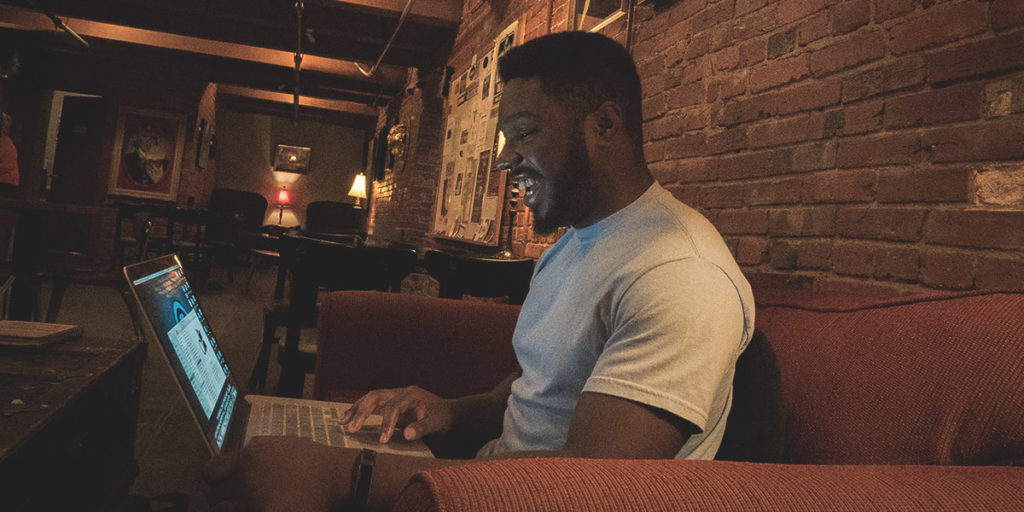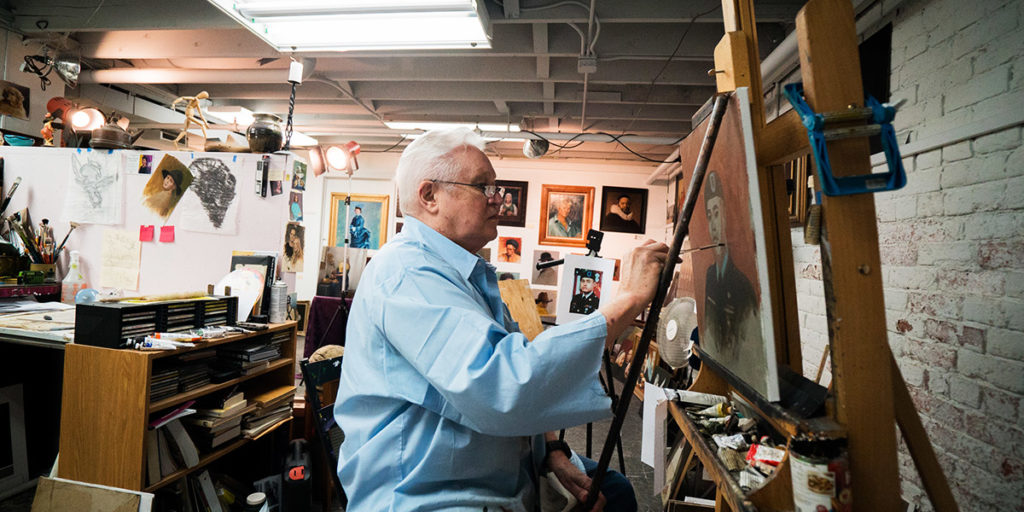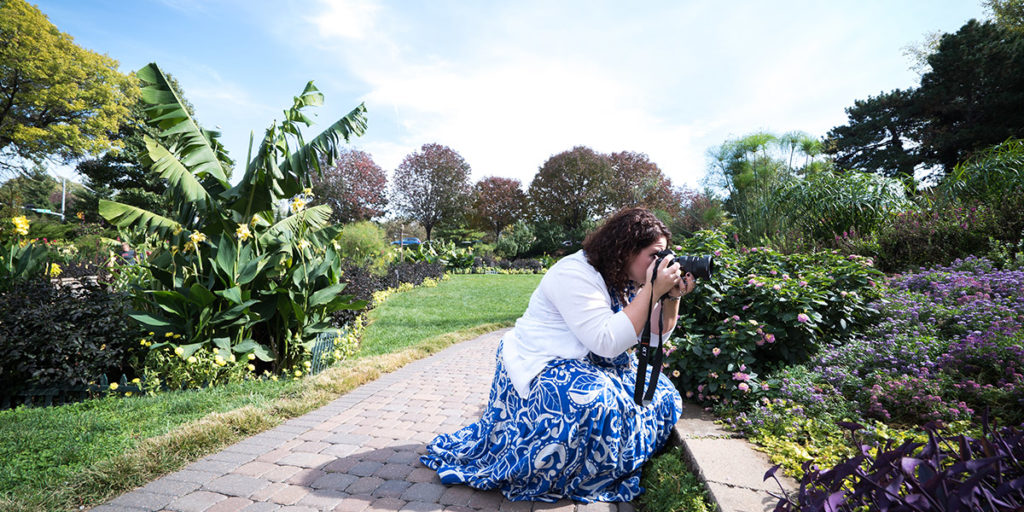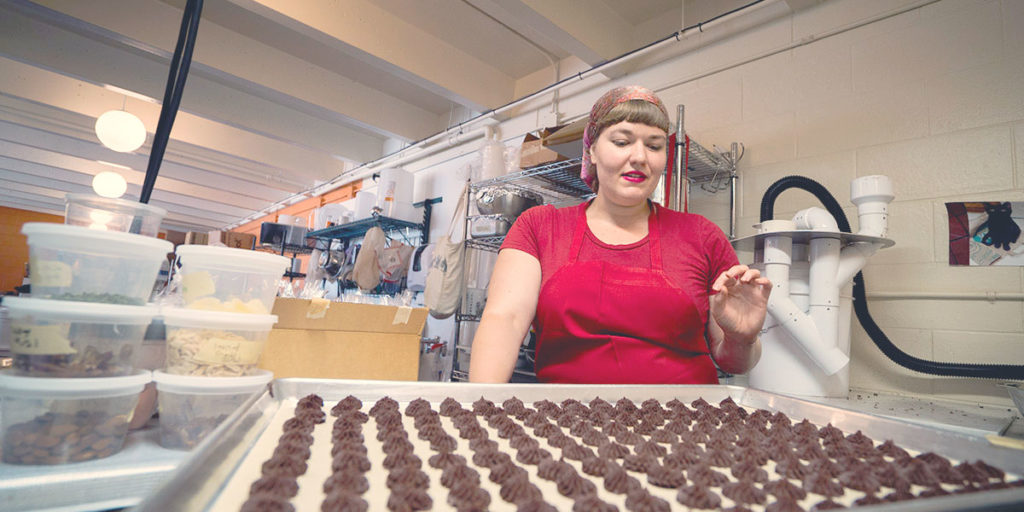
If DeWayne Taylor has it his way, he’ll be the next Ryan Seacrest.
Sure, maybe that’s asking a lot, but DeWayne is pretty convinced he can get there. He’s an optimist and a go-getter. He’s not one to back down from a challenge, and seems to approach nearly every situation with a smile.
That’s just who DeWayne is, but how he became that way… well, that’s a story.
DeWayne grew up in St. Louis, where he was surrounded by a family of entrepreneurs and small business owners. He saw his mom, aunts and uncles work hard at jobs they were passionate about and they encouraged him to find his own passion in life.
At an early age, DeWayne discovered his love of being in front of a crowd. He felt at ease around large groups of people and found ways to connect with others even when he was an outsider.
During high school, his mom’s job uprooted his family from St. Louis and moved them to Lincoln. It was a big transition, but one that he says helped his story come to life.
He jumped into all kinds of activities in high school to get involved and make new friends. Lincoln felt so much safer than St. Louis, and DeWayne said he loved how he could walk to school and be outside whenever he wanted without having to worry about his safety. It was freeing, and just what he needed to be himself.
DeWayne quickly found that speech became a fun extracurricular that sparked his passion. He loved working with others, presenting on a topic that interested him and performing in front of the judges. He didn’t just like it, he was good at it too. He competed locally and nationally with his high school team and was recruited to join the speech team at UNL.
But speech wasn’t the only passion of DeWayne’s in high school, there was also beatboxing.
Toward the end of his freshman year, DeWayne got bored during track and started transferring the rhythms running through his head to his mouth. A few of his friends started to notice what he was doing and really liked it, but DeWayne just brushed it off.
In his spare time he watched videos on how to beatbox and practiced in front of a small group of his friends. It wasn’t his main focus, just a side hobby that a few people knew about.
During his senior year a few of his friends made a deal with DeWayne, they said if he was crowned prom king he’d have to beatbox at the prom. DeWayne just laughed about the challenge because he thought there was no way he’d be prom king, but as luck would have it, he was crowned king and then handed the microphone.
DeWayne was super nervous. He was on the spot and started to question himself. What if they thought he was weird, what if they thought his beatboxing was dumb?
But the reaction he got was the opposite of everything he feared – they loved his beatboxing and couldn’t believe he’d been keeping his talent hidden.
Before long, DeWayne was performing at birthday parties, elementary schools and even dive bars. His typical event lineup included him talking about the origins of beatboxing, its multicultural history and then performing.
When he attended UNL he performed at Big Red Welcome to kick off the school year and has been performing around Lincoln ever since. He’s hosted events and performed for various companies including Ted X, RedBull, Blue Cross Blue Shield, The College World Series and Verizon Wireless. Each experience taught him something new about himself and the career path he was on. He started to see that being in front of a crowd was his way to connect with others, get people excited and be a part of the community. It connected his speech skills and beatboxing into a dream that just felt right.
It’s hard to describe, he said, but he just feels like himself when it’s his job to excite a crowd of people. It’s a challenge, but one that he loves and something that brings out a side of him that he’s proud to show off.
But it’s also a dream that a lot of people often make light of. ‘Being a TV, radio or event host? That’s not a career!’ they often say.
It’s definitely been a challenge. Juggling his college classes and his paying gigs sometimes means that he has to skip classes to perform. It’s money he needs to pay for school and experience that’s important for his future, but it also means it’ll take him longer than the average student to complete school.
This past spring DeWayne lived in LA for a few months while he participated in a hosting school. It was a big risk to take a semester off and an even bigger risk to put himself out there in front of industry professionals. He was challenged and pushed to understand his strengths and weaknesses, preparing him for whatever is next in his story.
DeWayne likes to challenge himself. To do more, dream bigger, learn more and try as hard as he can to make himself better. He doesn’t see his story as something extraordinary, he actually said he feels like a pretty boring guy. But he has drive and direction and he’s anxious to see where his story will take him next.
“I see my life and I know where I want to go,” he said. “It doesn’t matter what happens – it does, but it doesn’t – I know where I’m going and I’ll get there.”


